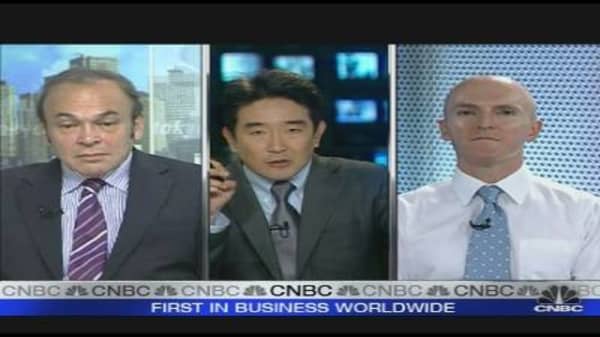Governments and companies will soon find themselves battling over the small supply of private savings available, paving the way for another recession, Ron Napier, head of Napier Investment Advisors, told CNBC Monday.
"In 2010 we'll have crowding out in world capital markets because the government deficits are too large. That is going to create a huge collision between the private sector and the public sector," Napier warned. "In 2011, when (governments and central banks) try to withdraw stimulus, withdraw monetary looseness … they are going to see things possibly head back into recession."
"The canary in the coalmine is going to be mid-2010 if interest rates and bond markets around the world start to rise — that is going to be a sign of crowding out," he said.
He told CNBC the private sector will struggle to raise enough capital through long-term funds as governments around the world continue to rack up large deficits, thereby taking up "huge amounts of private savings."



